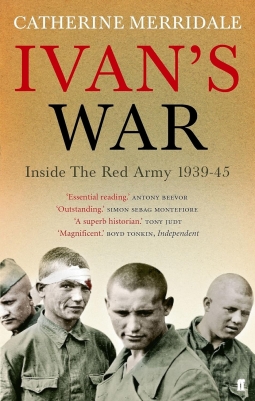- from Amazon:
 "The Russians today apparently had stopped the German advance beyond Kharkov and had even regained the initiative on some sectors of the Donets. The turn of the tide came in Chuguyev, a town on the Donets River some 20 miles southeast of Kharkov. Yesterday the German radio said that Russin forces 'encircled' there had failed in attempts to break out." Reporting by radio from the city of Moscow, the celebrated Russian poet Vera Inber (1890 - 1972) gave an account of the difficult life lived by the civilians of Leningrad when the Nazi war machine laid siege to that city between September 8, 1941 through January 27, 1944:
"I will never forget the winter of 1941 - 42, when the bread ration was 4.4 ounces daily - and nothing else but bread was issued. In those days, we would bury our dead in long ditches - common graves. To bury your dead in separate graves, you needed fourteen ounces of bread for the gravedigger and your own shovel. Otherwise, you would have to wait your turn for days and days. Children's sleighs served as hearses to the cemetery." During the late war period, leftist playwright Lillian Hellman (1905 – 1984), was twice denied permission to travel to war-torn Britain on the grounds that she had been recognized as an active communist. Yet, ironically, those same pencil-pushers in the State Department turned around a few months later and granted her a passport to visit the Soviet Union in August of 1944 - as a guest artist of VOKS, the Soviet agency that processed all international cultural exchanges. It was during this visit that she penned the attached eyewitness account of the Nazi retreat through Stalin's Russia:
"Five days of looking out of a train window into endless devastation makes you sad at first, and then numb. Here there is nothing left, and the eye gets unhappily accustomed to nothing and begins to accept it..."
Click here to read a 1939 STAGE MAGAZINE profile of this writer.
"This week one of the greatest battles of history shaped up on the Oder River.
The prize was Berlin and the existence of Germany. " "Flags of two new kinds are flying in the city - white flags displayed by the panic-stricken populace, and the first Soviet flags that, Reuters says, are hoisted over what tall buildings are left within the captured districts. Three Soviet guards carried a blood-soaked banner 2000 miles from Stalingrad to Berlin. Pravda says the soldiers kneeled and kissed the flag and then raised it over a ruined building." "The aspiration to be the first to meet the Red Army is aired all the way up and down the line, from division generals to the boys in the foxholes. And if the Yanks had their way, they'd hit the first road east and keep helling it eastward till they hit the vodka. As one soldier from an armored division put it:"
"'This is what the hell we've been pushing across Europe for and I don't want to lose the pie when I practically have it in my mouth.'" |